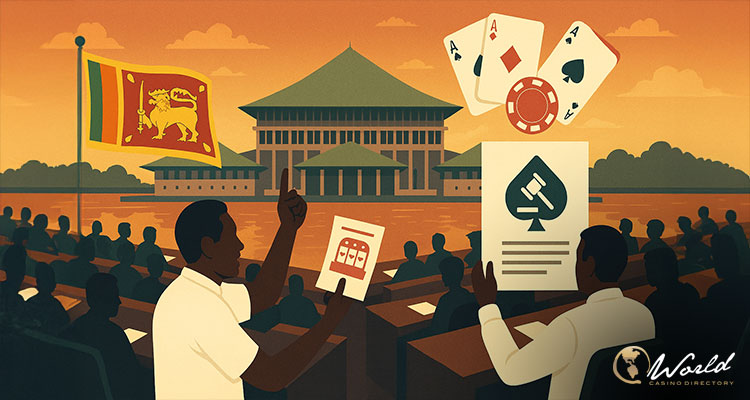Sri Lanka’s push to create a centralised body for regulating its gambling sector has taken a key step forward, with the Parliamentary Committee on Public Finance (CoPF) approving the Gambling Regulatory Authority Bill. The decision, reached at an August 12 meeting chaired by Member of Parliament Rauff Hakeem, clears the way for the bill to be presented to Parliament for further debate.
Oversight, Licensing, and Economic Goals
The proposed Gambling Regulatory Authority (GRA) is designed to operate as an independent entity tasked with overseeing betting and gaming operators throughout the country. According to the committee, its mandate will extend beyond basic oversight, with objectives to “standardise betting and gaming establishments in Sri Lanka, minimise social harm, develop the tourism sector and grow the economy.”
According to GGRAsia, the measure has been under consideration for some time, with its draft published in May under the direction of President Anura Kumara Dissanayake, who also serves as Minister of Finance, Planning and Economic Development.
Under the bill, the GRA will regulate and licence all gambling operations, from casinos to online platforms, while enforcing responsible gambling practices, preventing money laundering, and ensuring that venues meet safety, hygiene, and service standards. It will also collect gambling-related tax revenue and promote tourism as part of its remit.
The bill proposes repealing outdated legislation, including the Horse Racing Betting Ordinance, the Gambling Ordinance, and the Casino Ordinance. Its governance structure would include senior officials such as the Secretary to the Ministry of Finance, the Commissioner General of Inland Revenue, the Head of the Financial Intelligence Unit, and the Inspector General of Police or their representatives, alongside three members appointed by the Finance Minister for three-year terms.
The development follows the recent August 2 opening of City of Dreams Sri Lanka, the country’s first large-scale integrated resort and casino, developed by Melco Resorts & Entertainment Ltd in partnership with John Keells Group Plc. The $1.2 billion project is the largest private investment in Sri Lanka’s history and marks Melco’s entry into South Asia. Positioned to attract tourists from nearby India, the resort has heightened calls for a consistent regulatory framework to support long-term growth.
Criticism and Regulatory Gaps
Despite CoPF’s approval, concerns about the GRA’s independence have been raised. The Advocata Institute, a Colombo-based think tank, warned, “The independence of a regulatory body is non-negotiable. Without it, we risk creating a framework that lacks credibility, is vulnerable to political interference, and cannot deliver on its mandate. In its current form, the Bill does not create a regulator. This bill creates a proxy, not a regulator.”
Advocata noted that the Finance Minister would have the power to appoint the Director General and board members, issue binding directives, and make regulations—potentially undermining the authority’s autonomy.
The bill has also been criticised for not covering online gambling, omitting representation from the Sri Lanka Tourism Development Authority, and excluding state-run lottery boards from oversight. Revenue collection would continue to rely on self-reporting by casino operators, a system experts say lacks proper verification.
Additional concerns include penalties for unlicensed operations that are lower than international norms, which could reduce compliance incentives for major operators.
The government argues that the new framework will help attract foreign investment, increase tax revenue, and bolster tourism. As part of the 2025 budget, the casino entry levy was raised from $50 to $100, and the tax rate on gambling revenue increased from 15% to 18%.
Industry analysts point out that while Sri Lanka’s gambling market was valued at $293.93 million in 2020 and is projected to grow to $410.04 million by 2026, regional competition is intensifying. Countries like the UAE and Thailand have moved quickly to open their gambling markets, and experts warn Sri Lanka risks losing investment opportunities if reforms are delayed.
Following CoPF approval, the bill will advance to Parliament, where further amendments may be discussed to address concerns over independence, online gambling oversight, and revenue tracking. If enacted, it will create a single framework for regulating casinos, online gaming, and potentially lotteries, with the stated aim of strengthening public trust while promoting economic growth.


